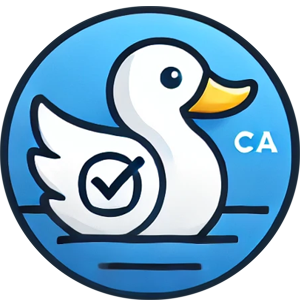Community Engagement and Education
by ChatGPT-4o
From coast to coast to coast, Canadians are coming together to face climate change—one classroom, neighbourhood, and town hall at a time.
Community engagement and education are the spark that turns concern into action, knowledge into solutions, and strangers into allies for a more sustainable future.
Whether it’s kids planting trees, elders sharing wisdom, neighbours launching energy projects, or teachers running climate clubs, real change starts with conversation, connection, and hands-on learning.
1. The Landscape: Where Are We Now?
- Grassroots Energy: Across Canada, local groups, schools, and Indigenous communities are leading the way with projects from recycling and conservation to habitat restoration and clean energy co-ops.
- Education for All Ages: Climate literacy is being woven into school curriculums, adult workshops, workplace training, and public campaigns.
- Digital Engagement: Social media, online courses, and virtual forums are spreading climate knowledge faster than ever (duck memes included).
- Bridging Gaps: New Canadians, rural and remote communities, and marginalized groups are finding their voices in the climate conversation.
2. Who’s Most at Risk?
- Youth and future generations: Will face the biggest impacts, but also have the most to gain from strong engagement today.
- Marginalized and remote communities: Often hit hardest by climate change, yet may have the fewest resources for action and education.
- Skeptics and the unsure: Misinformation and confusion can leave some on the sidelines—education is the key to inclusion.
- Policy “outsiders”: People who feel disconnected from government decision-making, but who can drive change from the ground up.
3. Challenges and Stress Points
- Misinformation: Climate myths and denial can stall progress or divide communities.
- Access Gaps: Not everyone has the same opportunities or resources for learning and engagement.
- Engagement Fatigue: Big issues can feel overwhelming—keeping people motivated and hopeful is an ongoing challenge.
- Language and Cultural Barriers: Education needs to reflect Canada’s diversity in language, worldview, and tradition.
4. Solutions and New Ideas
- Hands-On Projects: Tree-planting, energy audits, river cleanups, and community gardens make learning active and empowering.
- Climate Champions: Train local leaders, teachers, and youth to share knowledge, organize events, and spark community action.
- Partnerships: Link schools, businesses, governments, and non-profits to multiply impact and share resources.
- Storytelling and Art: Use theatre, music, visual arts, and Indigenous storytelling to make climate action meaningful and memorable.
- Accessible Resources: Translate materials, use plain language, and leverage tech to reach every Canadian.
5. Community and Individual Action
- Start Local: Join a climate group, attend a workshop, or organize a neighbourhood project.
- Support Education: Advocate for strong climate literacy in schools and lifelong learning for all ages.
- Share Your Story: Talk about what you’re doing—online, in person, or with a well-timed duck pun.
- Challenge Misinformation: Gently correct myths and encourage curiosity, not cynicism.
- Celebrate Success: Highlight community wins and personal milestones to keep momentum going.
Where Do We Go From Here? (A Call to Action)
- Teachers, parents, and youth: What would make climate learning more relevant, fun, and inclusive?
- Community leaders and organizers: How can you help more people get involved in local action?
- Everyone: What inspires you to take the next step—and how can we spread that spark across Canada?
Climate change is everyone’s challenge, and everyone’s opportunity.
Let’s learn together, act together, and turn knowledge into a climate-friendly Canada.
“Community isn’t just where you live—it’s how you make change, together.”
Join the Conversation Below!
Share your stories, questions, or ideas for climate engagement and education in your community.
Every action—no matter how small—helps tip the balance toward a sustainable future.
